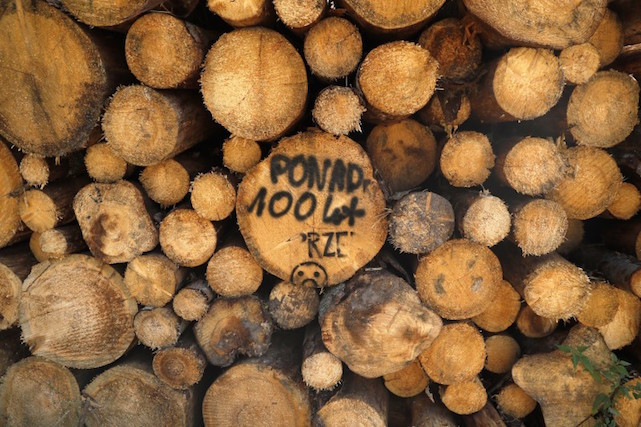The Luxembourg-based European Court of Justice (ECJ) said on Monday Poland would be fined 100,000 euros a day if it did not stop large-scale logging in the ancient forest straddling the border between Poland and Belarus.
The court also reiterated its July stance that Poland must stop the logging immediately pending a final ruling in a case the EU’s Brussels-based executive brought before the tribunal.
Speaking to radio Wnet in the government’s first response to the court, environment minister Jan Szyszko did not make clear whether Poland planned to halt logging to avoid the fine, but added: “We fulfil the tribunal’s recommendations 100 percent.”
“We will be doing everything to avoid the fines,” Poland’s Foreign Minister Witold Waszczykowski told radio RMF.
The row feeds into a wider clash between the EU and its biggest eastern member where the ruling Law and Justice (PiS) party is accused of undermining democratic standards, including weakening judicial independence.
When asked at a conference whether Poland would stop logging in Bialowieza to avoid the fines, Szyszko replied “Why are you talking about logging?” and did not provide a clear answer.
HEAVY EQUIPMENT
Szyszko considers “logging” as unsuitable description of state-approved actions in Bialowieza. The ministry has referred to “sanitary cutting” or “actions taken” in the forest.
The minister also said there is no risk Poland will have to pay the fine as it observes EU law and the court’s decision. Szyszko reiterated that the actions in Bialowieza were aimed only at guaranteeing the safety of visitors.
Konrad Tomaszewski, the head of State Forests, a state-run company managing most of Polish forests, said it had decided to stop using heavy vehicle-born cutting equipment to cut down trees in Bialowieza as they were no longer needed.
Szyszko approved a tripling of the quota of wood that can be harvested in one of three administrative areas of the Bialowieza Forest in March 2016, triggering environmentalists’ protests and dividing Polish society.
He has argued that it would help stop a beetle outbreak unseen in decades that harms spruce and ensure the safety of people strolling in the forest, where trees have been weakened.
Logged trees and a stub are seen after logging at one of the last primeval forests in Europe, Bialowieza forest, Poland August 29, 2017. REUTERS/Kacper Pempel
Katarzyna Jagiello from Greenpeace told reporters in front of the ministry’s building that trees from the Bialowieza Forest continued to be “logged, taken away and sold.”
About 180,000 cubic metres were cut in Bialowieza Forest this year, equivalent to 400 percent of average annual logging volumes there, said Adam Bohdan from Wild Poland Foundation.
But Tomaszewski said this year’s harvesting had been one of the smallest in the past years and is in line with the plan approved by Szyszko.
(Reporting by Agnieszka Barteczko, Editing by William Maclean; Additional reporting by Pawel Florkiewicz)

